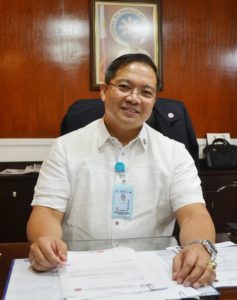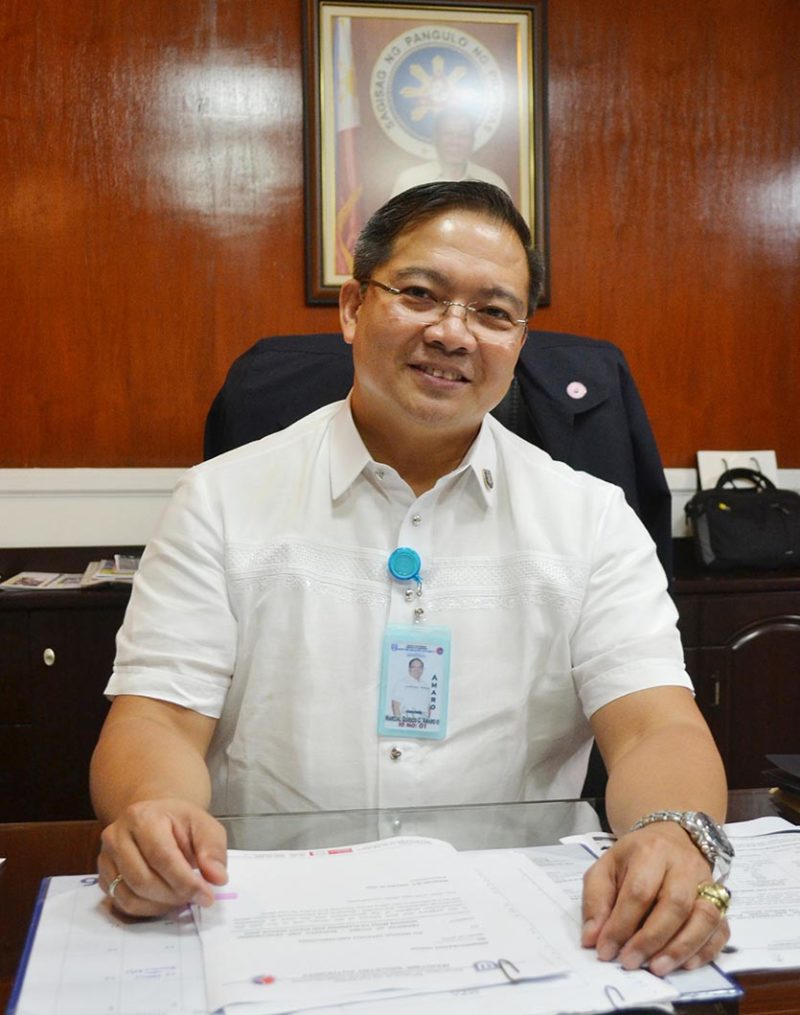
The Philippine Maritime Industry Authority (Marina) is moving to reinstate incentives for domestic shipping operators planning to re-fleet, part of the government’s drive to modernize the country’s fleet of vessels and prevent accidents at sea.
Marina administrator Marcial Amaro III said they are now discussing with mother agency, the Department of Transportation, the eventual phase-out of old roll-on/roll-off (RoRo) and wood-hulled vessels, and mulling the restoration of incentives for companies to be affected by the policy.
The plan, Amaro said, is to phase out RoRo vessels that are 35 years and older as well as wood-hulled ships. This, he noted, is mandated by President Rodrigo Duterte, who has ordered that “not a single life” should perish at sea under his administration.
The administrator said Marina is also in talks with senators, the Board of Investments (BOI), Public-Private Partnership Center, Shipyard Association of the Philippines, and private banks to help with giving incentives to those re-fleeting as a result of the phase out.
He noted that aside from RoRo vessels and wood-hulled ships, other types of vessels will also be included in the government’s modernization program.
As this developed, an official from a group of domestic shipping lines asked Amaro during the association’s special general membership meeting on August 22 for Marina’s assistance in restoring incentives provided under the expired Republic Act (R.A) No. 9295.
Philippine Interisland Shipping Association (PISA) executive director Atty Pedro Aguilar made the request, noting that R.A. No. 9295, or the Domestic Shipping Act of 2004, lapsed in 2014 without any bills being filed for its extension.
He added that provisions for incentives under the BOI for bareboat charter had been amended to cover only new vessels, where once the benefits had extended to second-hand vessels as well.
“Maybe Marina can support our clamor with the BOI asking for restoration on incentives for second-hand vessels but younger ones,” Aguilar said.
“We can adopt the same or even lower it (age limit) so long as second-hand vessels can still enjoy incentives because you know how much a new vessel costs now, especially specialized tankers. They’re so expensive,” Aguilar said.
PISA also asked for Marina’s aid in repealing provisions in some orders “which add to the high cost of domestic shipping.”
One of these is Executive Order No. 1088, issued in 1986 and signed by then President Ferdinand Marcos, which makes pilotage compulsory for all government and private ports. He noted that prior to 1986, pilotage for domestic vessels was optional and depended on the classification of ports by the Philippine Ports Authority.
He added that currently, not all ports have pilots, forcing vessels to dock at ports that do.
Aguilar argued it is not the law that should declare a port unsafe and requiring mandatory pilotage, but “the government agency that handles the management of that port.”
Amaro admitted some harbor pilots have levied what he said are “exorbitant fees,” citing his previous experience when still connected with a domestic shipping line when the pilotage fee was increased to P100,000 from P38,000.
The administrator said there is a need to establish the rates of pilots to make sure that the fee being paid is commensurate to the service.
Several bills to improve and place under regulatory control the pilotage services in the country have been filed in Congress in the past years. The most recent, House Bill No. 1278, seeks to create a Pilotage Board and to liberalize pilotage services in the country.
Revisiting dry docking rules
Another rule that PISA wants tweaked is the mandatory dry docking of vessels at Marina-registered shipyards, which Aguilar said imposes high fees.
Dry docking in the Philippines costs from 40% to 45% more than those abroad, Amaro noted.
He suggested that a certain tonnage of vessel be allowed to dry dock at foreign shipyards, citing one account of a member liner that saw significant savings when a vessel dry docked in China.
On the government’s part, Amaro said it is planning to find an area to declare as an economic zone where shipyards and manufacturers of ship parts can locate.
The idea, Amaro said, is to have the ecozone provide the same incentives as other ecozones to help lower the cost of importing parts and constructing ships. The plan will also help Philippine shipyards since vessels can be constructed at their establishments instead of brought in from other countries.
PISA also raised their wish to amend R.A. No. 9483, which levies 5 centavos on every liter of petroleum products loaded onto tankers. Amaro said this concern is already being discussed, but did not provide other details.
The group also sought help against a local government unit (LGU) in Zamboanga that they claimed was taxing them a monitoring fee for plying in waters near the LGU’s jurisdiction. Aguilar noted that LGUs’ taxing power “is very limited.”
Amaro said Marina is already in talks with the Department of Interior and Local Government regarding this, adding that other LGUs are also levying fees on local shipping lines. – Roumina Pablo





